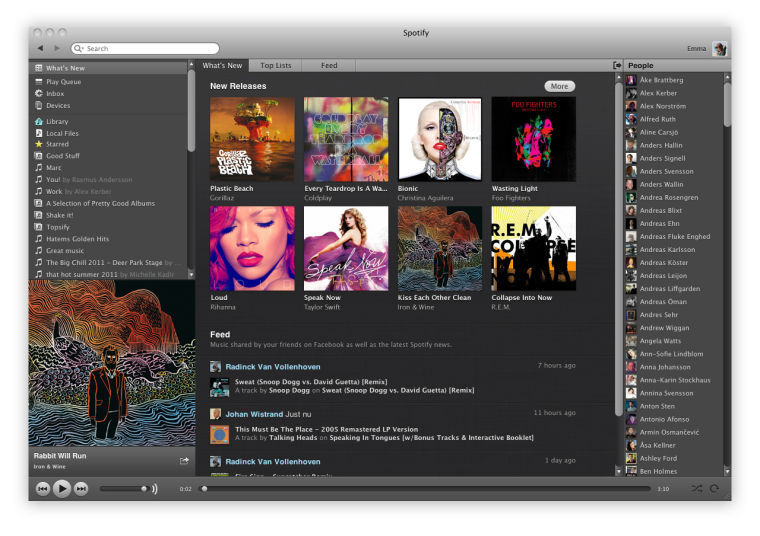Music streaming services provide musicians with exposure
Since its U.S. debut over a year and a half ago, Spotify has exploded as one of the most popular sources of digital music in the world. This increase in popularity marks a growing trend of music listeners who prefer streaming music services over purchase-based download services like iTunes or illegal downloading through the use of file sharing clients like BitTorrent.
While the increase in streaming music was initially welcomed by the industry for curbing illegal downloading, many musicians are becoming increasingly dissatisfied with the lack of royalties generated by the use of Spotify and other online services.
Are streaming music services any better than illegal downloading?
Since the advent of online music in the late 90s, the problem of decreasing royalties has plagued the music industry. And the tiny cut of music purchases that actually goes to the artist has gotten tinier.
While record companies have always benefited from the other side of the purchase cut, streaming companies are becoming the new multi-billion dollar moguls of the industry.
Ever since music became available for purchase online following the creation of the first primitive mp3 format, people have been figuring out ways to avoid paying for music.
The original Napster is a perfect example. Since illegal downloading became a thing, artists have had to figure out other ways to make money besides album sales.
The modern venture of being a musician is no longer about making it big selling records. It is a touring gig, and it has been a touring gig for years. No serious musician who is aware of his own profession would say otherwise.
The most shocking component of the Spotify revolution is that the detractors are musicians themselves, hailing from a subculture with a rich, long history of promoting and adapting to change.
Making money as an indie musician today is not the easiest task. For the most part, you are either starving or you become the next Tame Impala. And even if you do make it big in the world of indie music, you are not going to be making money like The Who or The Rolling Stones did back in the day.
Because it is so difficult, musicians who are not filling up venues on tour will not be able to make a sustainable living. Smart musicians are releasing their music for free to increase their popularity and the presence at their live shows.
Musicians who are not cutting it with their live performances would not have been able to make a sustainable living before online services like Spotify came on the scene. Therefore, they should be thanking Spotify for allowing them to burn out their short-lived dream in a slightly shorter timeframe.
Touring and merch sales make up such a large portion of the modern musician’s income that royalties are now just icing on the cake. So, essentially, some musicians are up in arms over Spotify and other music services swiping off just a bit of the icing ribbon from the bottom of the cake with their collective finger.
To these sensitive musicians, here is some advice: get out and tour more, and quit complaining, because it is bad for your image. The era of online streaming is here to stay, and Spotify is its brilliant champion.







